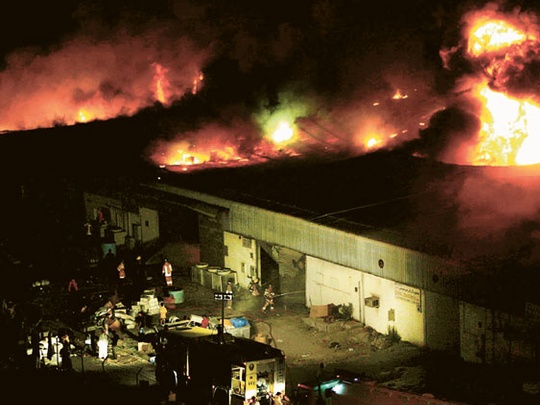
Dubai: The insistence by free zone authorities that tenants should compulsorily take out third-party liability has come as a welcome bonus for local insurers. But it may not be a sentiment shared by all the tenants.
Their bone of contention involves the minimum amount of insurance coverage demanded by some of the free zones. At one, the authorities have mandated that the coverage should start from Dh500,000 regardless of a company's activity and scale of operations. This is a precondition for the licence's renewal.
Third party — or public liability — insurance applies to damage caused to neighbouring offices by a fire or some other mishap that occurs within the insured's office. Those visitors to the latter's premises who get hurt come under the coverage of third party liability.
"The minimum sum makes no differentiation between a tenant operating with a handful of computers, chairs and desks and those with full-fledged operations," said an official with a trading firm which operates an office in one of the free zones. "It does away with the need for an insurance company to come in and take stock of the actual assets that need to be insured.
Grey areas
"It adds to the costs at a time when smaller firms need to have a low-cost operating environment.
"Also, if by some mishap a fire does cause damage to some offices, will the insurer be willing to pay up to Dh500,000 for a few PCs and furniture? Doesn't this represent a situation of over-insuring? There needs to be some rethink on the part of the free zone on this clause."
There may be grey areas in individual instances when third party liability is being applied.
But there is no arguing that it needs to be mandatory given the spate of fire-related accidents that have taken place in Dubai in recent months. In some of them, the damages caused were substantial and often irreplaceable.
These incidents also exposed the lack of adequate insurance coverage being taken out against such occurrences. Third-party coverage was more the exception than actually implemented.
So for local free zones operating in high-rise clusters, it makes sense to implement such a programme for licence renewals, according to insurers. "It's standard practice in any high-rise environment and it's high time that awareness was built up in the UAE as well," said an insurer.
"The master-developer or free zone authorities are well within their rights to enforce this."
Insurers also argue that the actual premiums for third party liability cover are far from being a heavy load for the insured.
Typically, rates range between Dh1,000 to Dh2,500 per Dh1 million of insurance depending on whether the activity undertaken is a shop, office or hotel.
Part of a pattern
"It is in the interests of the tenants to safeguard themselves by taking such policies as they are priced very competitively in the UAE," said Siddarth Razdan, chief operating officer at Insighters, an insurance brokerage firm. "It is not that uncommon for landlords of commercial property to insert a clause in the contract requiring tenants to have adequate cover for their third party liability.
"So if free zones are making it compulsory, it's part of a pattern. In many ways free zones are well ahead of the pack in terms of their requirements. For instance, they require tenants to provide for medical coverage.
"Also, if no such requirement exists, it's human nature that some tenants will try to avoid it. For instance, in a marketplace such as Saudi Arabia drivers still avoided taking motor insurance until it was made compulsory."












